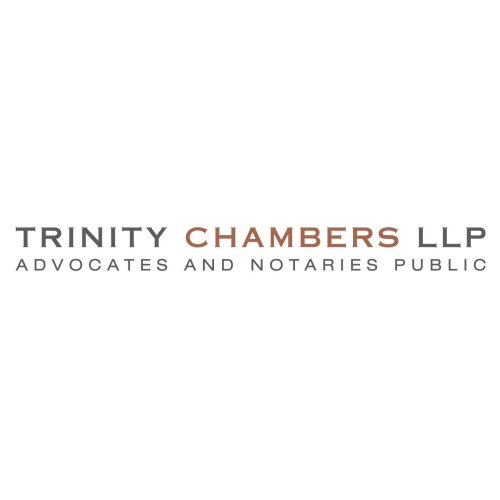Best Conveyancing Lawyers in Guernsey
Share your needs with us, get contacted by law firms.
Free. Takes 2 min.
Free Guide to Hiring a Real Estate Lawyer
Or refine your search by selecting a city:
List of the best lawyers in Guernsey
About Conveyancing Law in Guernsey
Conveyancing is the legal process of transferring property ownership from one person to another. In Guernsey, as in other jurisdictions, this process involves a series of legal and administrative steps to ensure the secure and lawful transfer of property. The conveyancing system in Guernsey is unique in several respects, influenced by the island’s legal traditions and property registration requirements. Guernsey law can differ markedly from that in the UK due to its distinct legal heritage as a Crown Dependency. Because property laws are locally governed, it is crucial to understand the specific conveyancing procedures of Guernsey when buying, selling, or transferring property there.
Why You May Need a Lawyer
Conveyancing in Guernsey involves various legal and practical complexities. Engaging a lawyer is highly advisable to help you navigate these complexities and protect your interests. Common situations where you may require legal assistance include:
- Buying or selling residential or commercial property
- Transferring property due to inheritance or family arrangements
- Securing a mortgage or other financing for a property purchase
- Dealing with boundary or title disputes
- Understanding rights and restrictions associated with certain properties, such as historic dwellings or agricultural land
- Ensuring compliance with local anti-money laundering requirements
- Completing the necessary paperwork and searches before property transfer
- Registering the transaction with the appropriate land registry authorities
A qualified local lawyer can provide advice, carry out due diligence, draft relevant documents, and represent you in legal proceedings to safeguard your interests during the conveyancing process.
Local Laws Overview
Conveyancing in Guernsey is governed by a distinct legal framework influenced by Norman law traditions. The most important local aspects include:
- Land Title and Registration: Property in Guernsey is not registered at a central land registry as in some jurisdictions. Instead, title deeds are maintained by the Greffe (the Royal Court’s records office). Checking the chain of title for any property is an essential part of the process.
- Contracts and Royal Court: Property transfers must be formalized through a contract called a conveyance, which is read aloud and passed before the Royal Court of Guernsey, providing public record and official validation.
- Laws on Dower and Co-ownership: Guernsey has particular laws regarding dower (spousal rights) and various forms of joint property ownership which must be considered in conveyancing.
- Eligibility and Housing Control: Guernsey operates Housing Control Laws to regulate who may own or occupy certain properties. These laws are enforced through the Open Market and Local Market system.
- Due Diligence and Anti-Money Laundering: Lawyers are required to conduct due diligence on clients to comply with anti-money laundering legislation.
- Fees and Taxation: The property purchaser is usually responsible for fees such as Documentation Duty (similar to Stamp Duty). Legal fees and other charges will also need to be paid.
These local requirements make it essential to work with legal professionals who have experience in Guernsey property law.
Frequently Asked Questions
What does conveyancing involve in Guernsey?
The process includes checking property title, negotiating terms, drafting contracts, conducting due diligence, reading the conveyance before the Royal Court, and completing the transfer of funds and documents.
Do I need to use a lawyer for conveyancing in Guernsey?
Yes, in Guernsey it is a legal requirement for both buyer and seller to use an Advocate (a qualified Guernsey lawyer) when transferring property.
How long does the conveyancing process take?
On average, conveyancing can take between 4 to 8 weeks, but timing may vary depending on the complexity of the transaction and the promptness of all parties involved.
What are Open Market and Local Market properties?
Open Market properties can be owned or occupied by anyone with legal residence permission. Local Market properties are subject to housing control restrictions and can usually only be occupied by individuals who have the right to live and work in Guernsey.
What is Documentation Duty?
Documentation Duty is a form of property transfer tax payable by the buyer, calculated based on the property’s price. Rates vary depending on the value of the transaction.
Are there any property taxes I should be aware of?
Besides Documentation Duty, annual property taxes (called Occupier’s Rates) and separate Parish Rates may apply.
Is a survey required before purchase?
It is not mandatory by law, but it is strongly recommended to have a building survey carried out prior to purchase to identify any structural or maintenance issues.
Can non-residents buy property in Guernsey?
Non-residents can purchase property, but are typically limited to Open Market property unless they have a specific right to Local Market housing.
What if there is a dispute about the property after purchase?
If disputes arise, they are usually resolved with assistance from legal professionals and, if necessary, through court proceedings or alternative dispute resolution methods.
What happens on completion day?
On completion day, the Contract of Sale is read before the Royal Court, the purchase price is paid, and legal ownership is transferred to the buyer.
Additional Resources
For those seeking further information or support with conveyancing in Guernsey, the following resources and organizations may be of use:
- The Law Officers of the Crown: Offer official publications on Guernsey property law and public guidance.
- Guernsey Bar (The Guernsey Legal Profession): Provides listings and information about local Advocates specializing in conveyancing.
- The States of Guernsey Housing Division: Supplies details on local housing laws, eligibility, and market classifications.
- Royal Court of Guernsey: The court is responsible for approving and recording property transfers and maintaining title records (Greffe).
- Guernsey Citizens Advice: Provides free initial guidance on conveyancing and other legal matters.
Next Steps
If you require legal assistance with a property transaction in Guernsey, it is recommended to:
- Contact a qualified Advocate who specializes in conveyancing to discuss your needs and agree on terms of engagement.
- Gather and provide all necessary documentation and information regarding the property and your circumstances.
- Ask your lawyer about potential fees, taxation, and the conveyancing timeline.
- Ensure you fully understand all aspects of the transaction, including any restrictions or obligations associated with the specific property.
- Follow your legal adviser’s instructions regarding property surveys, searches, and court attendance.
- After completion, make sure you retain all contracts, receipts, and official documentation for your records.
Initiating contact with a legal expert early in your conveyancing journey will help ensure a smoother process and reduce the risk of unexpected issues.
Lawzana helps you find the best lawyers and law firms in Guernsey through a curated and pre-screened list of qualified legal professionals. Our platform offers rankings and detailed profiles of attorneys and law firms, allowing you to compare based on practice areas, including Conveyancing, experience, and client feedback.
Each profile includes a description of the firm's areas of practice, client reviews, team members and partners, year of establishment, spoken languages, office locations, contact information, social media presence, and any published articles or resources. Most firms on our platform speak English and are experienced in both local and international legal matters.
Get a quote from top-rated law firms in Guernsey — quickly, securely, and without unnecessary hassle.
Disclaimer:
The information provided on this page is for general informational purposes only and does not constitute legal advice. While we strive to ensure the accuracy and relevance of the content, legal information may change over time, and interpretations of the law can vary. You should always consult with a qualified legal professional for advice specific to your situation.
We disclaim all liability for actions taken or not taken based on the content of this page. If you believe any information is incorrect or outdated, please contact us, and we will review and update it where appropriate.
Browse conveyancing law firms by city in Guernsey
Refine your search by selecting a city.










